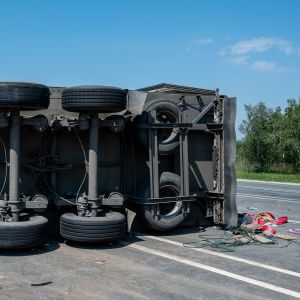Car accident injuries can run the spectrum of severity. While some victims are fortunate to walk away from their wreck with nothing more than bumps, bruises, and some scrapes, others suffer more serious injuries such as broken bones. The worst injuries, though, are those that leave an individual disabled. These catastrophic injuries are usually life-altering, leaving a car accident victim with reduced mobility, an inability to live what he or she once considered a normal life, and emotional turmoil.
While living with a disability can be difficult to say the least, there are ways that you can limit the impact that your medical condition has on your life. This week let’s look at a few steps you can take to reclaim control of your life after suffering a disabling injury.
- Allow yourself to feel your emotions: After suffering your injuries, you’re probably going to feel a rollercoaster of emotions. You’ll probably be angry, sad, frustrated, confused, and worried. It’s easy to try to bury these emotions, but don’t. Doing so can lead to even more mental and emotional strain and suppressing your emotions will make it harder for you to accept your condition. This means that you don’t have to force yourself to act happy when you’re not.
- Focus on what you can do: A disability has certainly taken a lot away from you, but try your best to not dwell on your losses. Instead, try to focus on what you can still do. Sure, you’ll need to mourn your losses. After all, that’s a natural stage of grief. But by solely focusing on what has been taken from you, you set the stage for more deep-seeded depression.
- Educate yourself: At the onset of a disability, it can be difficult to see a path forward to a bright future. But by educating yourself about your condition, you might find that there are more treatment options out there than you initially realized. Try to be open-minded and informed about your options so that you can seek out measures that make living your life with a disability a little bit easier.
- Find support: It’s common for disabled individuals to try to do everything on their own. For some, it’s a way to prove to themselves that they still have the power to live their lives how they want, just as they did before their accident. For others, they just don’t want to seem like a burden when they ask for help. Either way, it’s important to recognize that asking for help isn’t a sign of weakness. In fact, it takes an enormous amount of strength and courage to recognize your own shortcomings and seek out assistance when needed. So, make sure that you surround yourself with family, friends, mental health professionals, support groups, and legal advocates who stand ready to help you.
- Find purpose: It can be easy to dwell on what you can no longer do after suffering a disabling injury, which is why you need to take some time for yourself to discover things that you can do that interest you. Ask yourself what really matters to you, then focus on that moving forward. This can give you renewed energy and a greater sense of purpose.
There is hope for your future
Even if you feel like your future is bleak, you shouldn’t let yourself slip into despair. There are treatment options that you can obtain and lifestyle changes that you can make to ensure that you’re living the best life possible considering the circumstances. Although it may be hard to accomplish, you can limit the impact that your disability has on your life. As you work on doing so, please take care of yourself and seek out any assistance that you may need.




